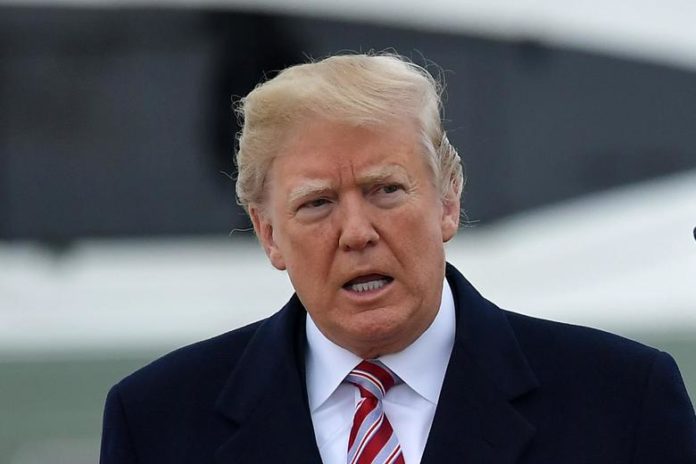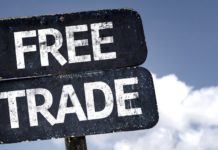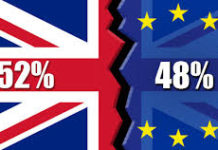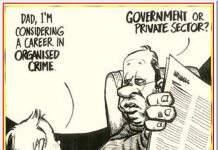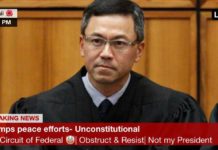I learned how to negotiate by reading a book, titled, Getting to Yes, by Roger Fisher, and William Ury. I’ve also read President Trump’s book, The Art of the Deal, and I believe I have an understanding of what the President wants from our trading partners in North America, Asia, and Europe.
Trump’s negotiating strategies are not very complicated. He approaches negotiations the way a poker player approaches gambling, looking for weaknesses in his opponents, and for tells. Trump likes to negotiate across as many different areas as possible, all at the same time, under the belief that the more possible deals he throws up into the air, the more deals he is apt to finish. As such, Trump is not sold on any deal until it is final. Trump also likes to take extreme positions, to shock (and perhaps even to horrify) his opponents, such that when he moderates his position, he looks like he is making concessions when in reality his moderated position may still be something well beyond ‘reasonable’.
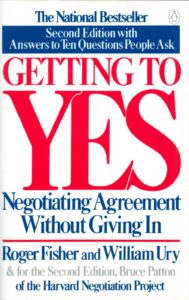 Trump looks at negotiations in terms of winning and losing. A deal that benefits all parties evenly is not a ‘win-win,’ but a ‘tie,’ and Trump prefers deals in which he considers himself a ‘winner,’ meaning that he gets more than what he really wanted, and does so at the expense of his opponents.
Trump looks at negotiations in terms of winning and losing. A deal that benefits all parties evenly is not a ‘win-win,’ but a ‘tie,’ and Trump prefers deals in which he considers himself a ‘winner,’ meaning that he gets more than what he really wanted, and does so at the expense of his opponents.
I contrast this negotiation technique with what I learned in Getting to Yes. I was taught not to take positions, but to focus instead on interests and values. I was also taught to dig through the positions taken by those I negotiate with to find their interests and values, and to negotiate with them based on their interests and values, while ignoring their actual positions. As an example, if I am negotiating a salary, rather than telling a prospective employer how much I think I should be paid, I’ll instead focus on the methodology used to determine the correct salary. “You have a range you feel it makes sense to pay for this position,” I’ll say, “and I have a range I think it makes sense for me to earn, based on my level of skill and experience. Salaries for a position such as this one generally fall along a bell curve, so if you are open to it, I’d like to look at the current bell curve for positions like this one in our geography, and then we can discuss where I might fit within that bell curve. We may find that I fall outside the part of the bell curve you are hiring within, or we might find that I should be a strong candidate for this position.”
Another factor relevant to negotiation, which is in both Trump’s book as well as in Getting to Yes, is the notion of each side’s best alternative to a negotiated agreement. I don’t think Trump discusses this directly, but Getting to Yes uses the acronym ‘BATNA,’ and makes it a central part of the book. In a nutshell, each side in a negotiation is starting from their best alternative to an agreement. If I am looking for a job, my best alternative is to keep looking, and if I am already employed, I am in a wonderful position to continue looking. That’s a strong BATNA. If my prospective employer is looking for a very specific set of skills, and I happen to have those skills, then their BATNA is to keep looking, with the possibility of not finding anyone else with the specific skills they need. That employer would have a relatively weak BATNA.
I used the techniques in Getting to Yes once when purchasing a car. I was looking for a slightly used Ford Taurus station wagon, and I found a dealership that had one. I wanted to pay significantly less than the dealership wanted to charge, and the salesperson finally said, “Look – you are looking for a Ford Taurus station wagon, and that’s a very specific thing to look for. If you don’t buy ours, you might not find another.” I replied, “That’s very true, but I don’t have to buy a Ford Taurus station wagon, whereas you do have to find someone to buy the one on your lot. Station wagons are not very popular, so if you don’t sell it to me, who are you going to sell it to? I can buy something else, somewhere else.” We could not settle on a price, so I left. The next day the dealership called me back and asked what it would take to close the deal. I gave the same price I’d been firm on the day before, and they sold me the car. My BATNA was better than theirs, and both sides of the negotiation knew it. More importantly, the dealership had a strong interest in getting that car off their lot to make room for something that would be easier to sell. My interest was in getting a car that met my needs, for as little as possible. The dealership got rid of that car for at least some profit, and I got the car at a great price. Both sides won.
Trump got more than people are giving him credit for with North Korea. While it is true that North Korea got us to end our war games with South Korea, and that North Korea has thus far given nothing in return, North Korea’s press is calling the agreement Kim and Trump signed significant, and Trump can start new war games with South Korea any time he wants to. Kim has promised to denuclearize, and Trump has promised nothing more than the normalization of relations, and the establishment of trade. Trump has predicated his promises on actual denuclearization, and Kim has already made promises to his own people that he will have to follow through on the promise of denuclearization, to keep. The current agreement isn’t a treaty, and it isn’t even an agreement so much as an agreement to make an agreement, but one thing it does do is to strengthen our BATNA while weakening North Korea’s. Whether or not we see a more concrete agreement is still in doubt, but we have the first true defrost in relations with North Korea in North Korea’s history, and that’s a good thing. Trade also bodes well for the North Korean people, who will directly benefit.
Trump’s new position with the EU, Canada, and Mexico, is a moderated position. Trump has moved from wanting trade deals that place ‘America First’ to wanting trade deals that eliminate all tariffs. Trump was never going to get deals that ‘put America first,’ but there was no reason why Trump could not get deals that avoid putting America last, which is largely what we have today. Trump has moderated from wanting to ‘win’ to wanting to make trade with our most important trading partners truly free, and in doing so, he’s listening not to his own protectionist impulses, but to Larry Kudlow, who is one of the sharpest economic thinkers in the country. It’s worth noting that Larry Kudlow is not an economist – he has a bachelors in history, and though he started an advanced degree in economics (and politics), he never finished it. Larry Kudlow was, however, the chief economist (and a managing director) at Bear Stearns, and has been an economic analyst on television for decades. Larry’s economic positions are very similar to my own, so I am obviously very happy that Trump has made Larry Kudlow his top economics advisor, and I am even happier that Trump is listening to Larry Kudlow. Truly free trade would be a win for everyone, in spite of the fact that in Trump’s book he doesn’t seem to believe in deals where everyone wins.
I don’t know whether or not Larry Kudlow was involved in the agreement with North Korea, but I do know that Larry Kudlow believes that the best way to avoid war between two countries is to make them economically dependent upon one another, and the creation of economic ties between North and South Korea, as well as between North Korea and the United States, can only make the world a safer place.
Trump is somewhat right that the United States has in the past signed onto trade deals that weren’t very good, but he is wrong when he says that other countries are ‘robbing our piggy bank,’ or in any way harming the United States. The truth is that we are better off eliminating barriers with our trading partners, even if our trading partners do not follow suit, and as such, the roughly 3% tariffs the EU places on American goods does more to hurt the EU than to hurt the United States. Both the EU and the United States would be better off if those tariffs were eliminated, but to the degree that the EU has higher tariffs on US goods and services than the US has on EU goods and services, those tariffs hurt the EU more than they hurt the United States.
Tariffs are also only one form of trade barrier. There are other forms of barriers, such as customs procedures, border restrictions, and overly-onerous consumer protections. Non-tariff barriers hurt the country that applies them more than the country they are applied against, just as do tariffs.
China is our worst trading partner, and China provides the best example of how trade barriers harm the country applying them more than the country they are applied against. China would like to ship their goods and services to the United States without then buying US goods and services in return, and China plays all kinds of games to try to make this happen, but in the long run, those games hurt China rather than the United States.
When we buy things from China, we pay in US dollars, and those dollars are worthless on the streets of Beijing. The companies that receive US dollars need to convert those dollars into yuan before they can pay their workers, or buy Chinese goods and services. Whomever agrees to exchange dollars for yuan will do so only if those dollars can then be spent by the exchange company, and since they are US dollars, they need to be spent in the United States. The dollar is somewhat unique in that it is the world’s reserve currency, and as such dollars can be used to buy oil and other raw commodities, all over the world, but if a Chinese firm uses some of its dollars to buy, say, Saudi oil, all that does is to offload the need to buy US goods and services onto Saudi Arabia. Those dollars still end up growing the US economy.
China can buy US treasury notes rather than US goods and services, and in fact China is the largest foreign holder of US treasury notes, but all that does is to postpone the need to buy US goods and services until the treasury notes mature, at which time China needs to either roll-over the treasuries into new treasuries, or buy US goods and services. Treasury notes also bear interest, so if China decides to roll their treasuries over, the need to buy US goods and services compounds. Far from being indebted to China, the debt holdings China has makes China indebted to the United States in the only way that matters: they need to buy US goods and services.
China has been sending us televisions, refrigerators, and all kinds of other goods and services, and has been receiving paper in return. If China were to buy US goods and services with that paper, we’d have balanced trade, and China would get goods and services in return for the goods and services we get, but China does not want its people to buy US goods and services, so their government sits on that paper instead. China also subsidizes their trade, essentially taxing their people to cover some of the cost of the things we buy. Individual Chinese people can get rich selling to the United States that way, but it is hard for the country as a whole to get rich, when they are selling everything to us at a loss, and particularly when they refuse to spend the dollars we give them in exchange for the products we buy.
If the Chinese government wants to pay for 1/3 of my new television set, I’m OK with that…
Japan, in the 1970s and 1980s, used the same techniques China is using to try to grow their economy at our expense. Eventually the wheels came off, and as a result, Japan has not seen economic growth in two generations. The truth is that Japan is bankrupting itself trying not to economically decline, and eventually Japan will have to realize that their economy is a bubble. China will eventually suffer the same fate.
I, personally, don’t think that Trump’s book is very good. I don’t think negotiation is about winning or losing, and I don’t think strong-arming people is a viable negotiation tactic, and particularly not in the long term. At the same time, it did get North Korea to the negotiation table, and it has put the leaders of Mexico, Canada, and Europe in awkward positions where it may be in their political best interests to save face while giving in. This is a particularly likely outcome if Trump does what he did in North Korea, which was to throw his book out the window and focus on Getting to Yes instead.
Shifting from bad negotiation techniques to good ones is not in Trump’s book, but with North Korea that’s what Trump has done, and the more Trump talks about truly free trade rather than ‘winning’ with our trading partners, the more likely he is to find success, and that may be the biggest surprise about Trump and his negotiation book: Trump does not really follow it himself.
I really thought Trump would be a train wreck on the world stage, but so far I have been pleasantly surprised.
As always, if you like our message, please us the share buttons below to help spread the word!






